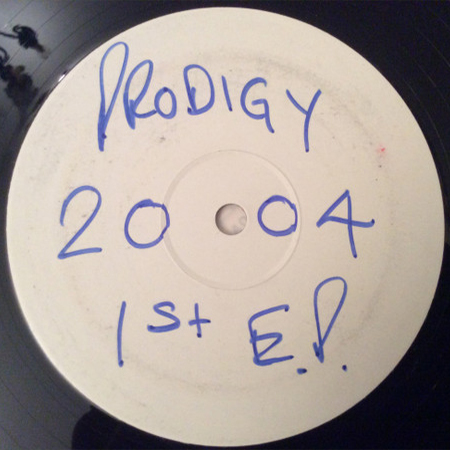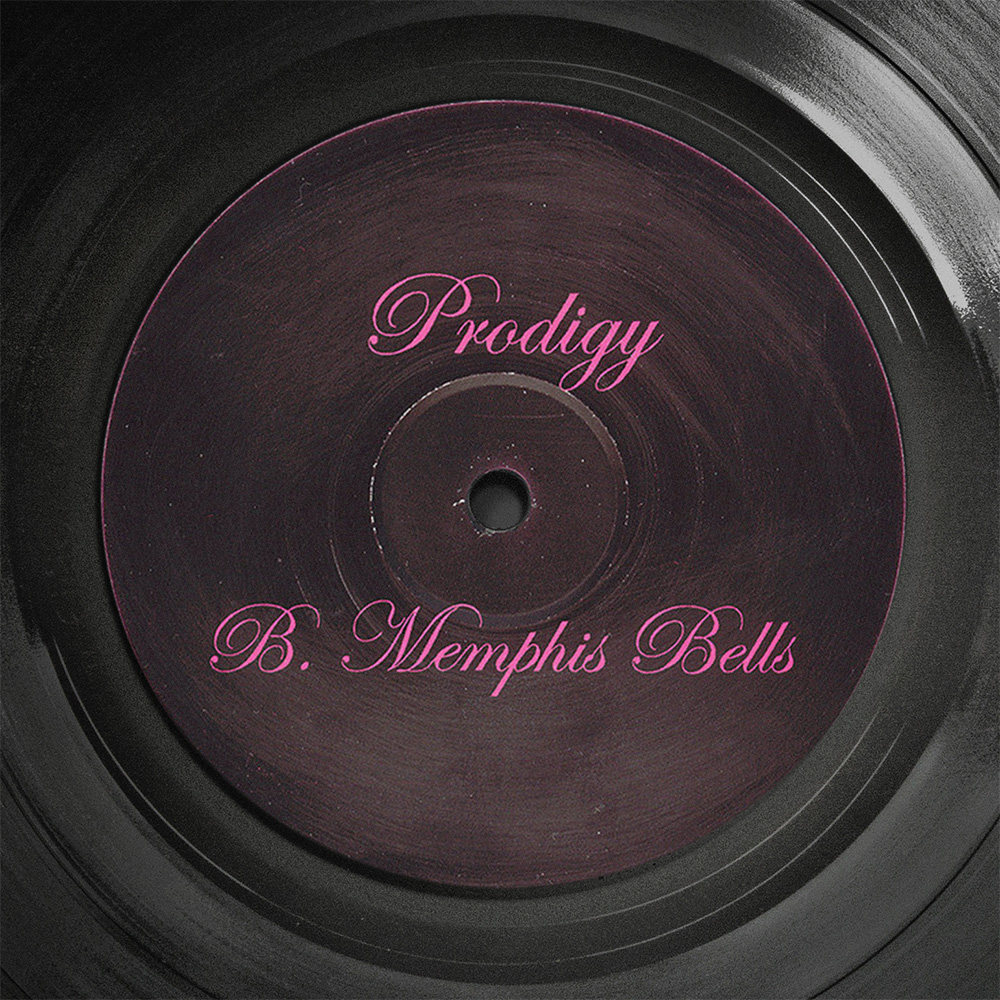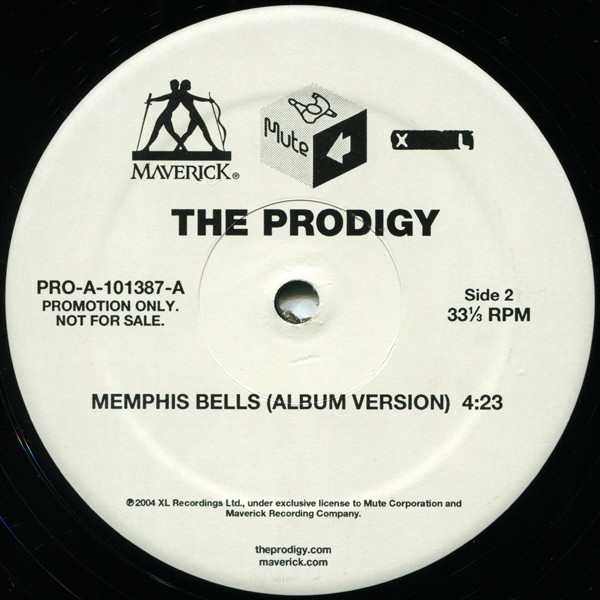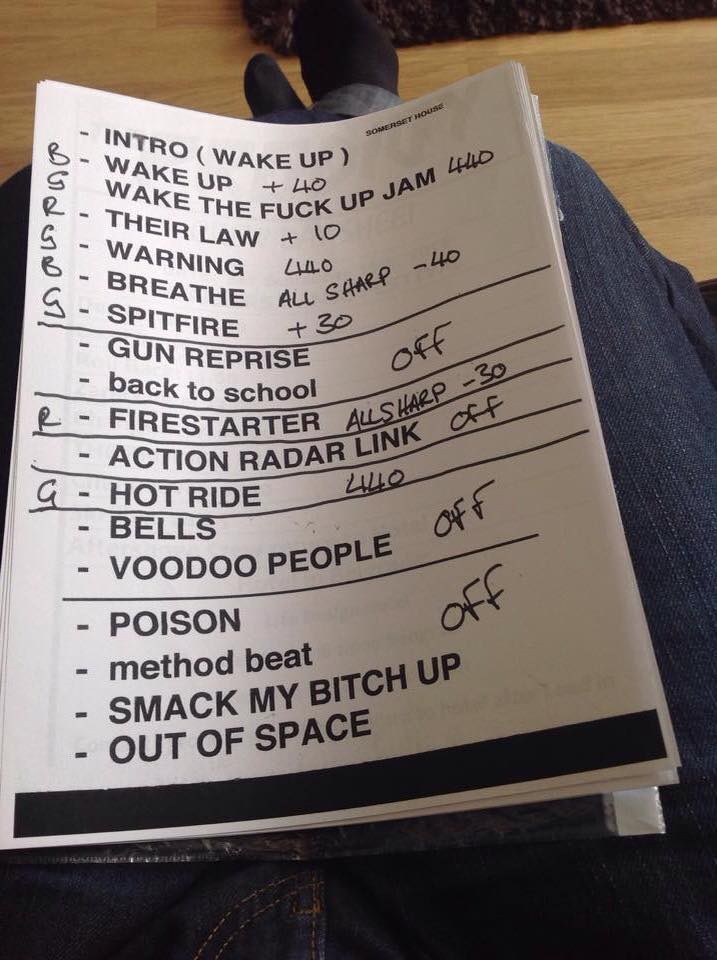#AONO20: ‘Memphis Bells’ turned 20!
In late June 2024, Memphis Bells by The Prodigy turned 20 years old: on June 21, 2004, it was released as a promo single along with Girls, and on June 28, the legendary website alwaysoutnumbered.com was launched, allowing anyone to create their own version of the track. To commemorate this anniversary, the All Souvenirs team will tell the detailed story of the track and the special website for it, as well as recall some other details about ‘Memphis Bells’. This is the second post in the #AONO20 series dedicated to the 20th anniversary of the Always Outnumbered Never Outgunned.
In early or mid-June 2004, a short instrumental snippet of a new track by The Prodigy leaked online: it was called Memphis Bells, and it was the second track from the upcoming album to surface on the internet: a preview of ‘Memphis Bells’ was available on some music store website. The instrumental track received mixed reactions: some compared it to ‘The Trick’ and ‘Molotov Bitch’ and were excited about Liam Howlett‘s new musical direction, while others mockingly called it R&B (the most popular genre in world pop music at the time) and were quick to write Howlett off.
The slow, viscous track with deep bass, a broken beat, and an eerie atmosphere, playing at 144 beats per minute, was definitely something new not only for The Prodigy’s leader but for electronic music in general: the popularization of dubstep was still a long way off (for example, Burial’s debut album would only be released in May 2006), and broken beat, grime, and UK garage had just begun to gain momentum in the early 2000s and were literally the most progressive music in Britain at the time. Howlett, as he had done several times before, was once again ahead of his time, and in the summer of 2004, mainstream lovers simply did not get his idea.
Liam Howlett for DJ Times: On ‘Memphis Bells’ I was inspired by Timbaland, his half-time beats — the jerkiness of it. I hadn’t done anything like that before — that was original for me. Throughout the whole record I tried to think of what I did with ‘The Fat Of The Land’ and try to make it different. I went to a trashier sound, a sexier sound, and I tried to get more of a live drum sound — a live kick.
Like many tracks from that period, ‘Memphis Bells’ was initially sketched in the Propellerheads Reason software: the original demo can be heard in the ‘Always Outnumbered Never Outgunned Demo Mix’ (a mini-mix of unreleased Prodigy demos from the early 2000s presented on the singles compilation ‘Their Law’ in 2005) – and it sounds noticeably poorer compared to the officially released versions, but it gives a good idea of how Liam works on his music.
Although the demo sounds raw, it is quite relevant even by today’s standards. For those who think otherwise, we suggest listening to a similar sound from Run The Jewels, released 10 years later: in 2013, the project became a real breakthrough and gathered tens of millions of listens.
Quote funny that in the same 2013, Howlett promised to send this original demo to Danny Fanboy (aka The Prodigy Fanboy), but it seems that once again it was just another idle chatter about respect: ‘I MIGHT EMAIL YOU THE DEMO VERSION OF MEMPHIS BELLS IF I CAN DIG IT OUT ,,’
Neil McLellan played a significant role in refining the track; the gray cardinal of The Prodigy: in most cases, he is not only the sound engineer for ‘Always Outnumbered Never Outgunned’ but also its co-producer – without his contribution, most of the album’s tunes would either sound very different or not appear at all. In addition to Reason, Liam invariably used analog instruments in the track, such as the sub-bass of the microKORG.
Screen Weekly Review: Memphis Bells offers a twisted, dirty take on Timbaland’s future sci-funk. The energy is still there, so is the tuffness, but the room to breathe adds a newer level of tension
On June 21, 2004, XL Recordings launched the sale of the Girls / Memphis Bell vinyl: the announcement on the website stated that it was a sampler of the upcoming album, available in ‘VERY limited quantities’. In fact, this release can be called the first EP of that period – one of the test presses literally had ‘Prodigy 2004 | 1st E.P.’ written on it. In addition to the limited vinyl run, a CD version was also released separately, intended not for sale but for promotion.
The two-track release was interesting because ‘Memphis Bells’ was released here as an instrumental without Princess Superstar‘s vocals – initially, the track was planned to be released without vocals at all! At the time of the sampler’s release, there was no separate mention of an instrumental mix in the credits, and on the Maverick promo vinyl, the track was even listed as the album version. Princess Superstar’s vocals were taken by Howlett from another demo and added to the album mix of ‘Memphis Bells’ almost at the very last moment before the release.
Princess Superstar on SoundCloud: In 2004 The Prodigy asked me to rap something to this song. I thought it was so damn hot, I was like how are they going to clear this MJ sample? Answer is – They didn’t! They cut one or two lines from my original lines and totally changed the track to become… MEMPHIS BELLS. So grateful to have collaborated with the greats.
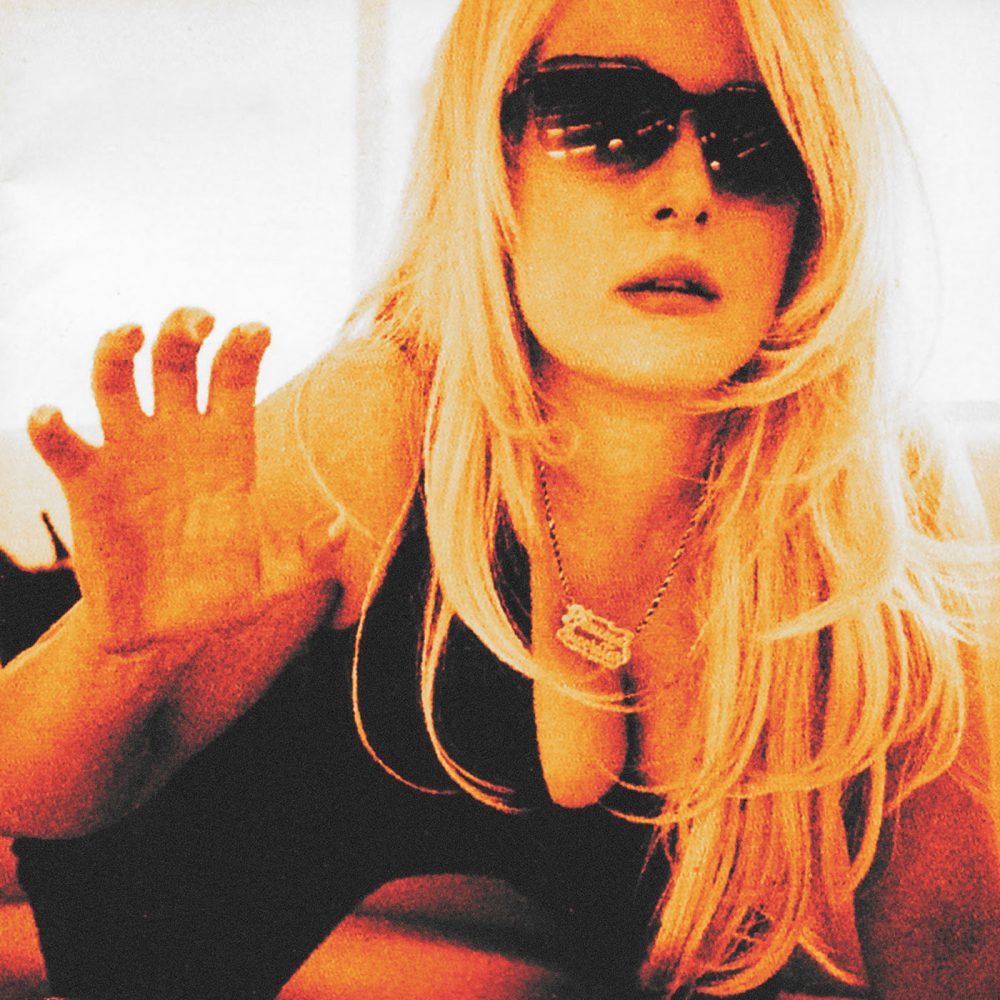
The fact is that Princess Superstar originally rapped her text on the demo of The Way It Is – and Liam took literally a couple of lines from there, ‘Lick it once, lick it twice, come on put that shit on ice’, and a few come ons, slowed them down, and fitted them to the already finished ‘Memphis Bells’. This important detail became known only on March 6, 2019, two days after the tragic passing of Keith Flint: in his memory, Princess Superstar posted this rare demo Jesus Christ I’m Nice from the time of working with Liam and provided it with her comments.
Although the track was somewhat of a single, no music video was released for it. Despite this, a cool visuals made in the then-trendy Macromedia Flash was available on the band’s official website, where Princess Superstar’s vocals were duplicated by text on the screen. Ten years later, similar lyric videos would become common on YouTube.
A week after the release of the vinyl and promo discs, the special website alwaysoutnumbered.com was launched, where fans could create their own unique version of the track. In today’s reality, the track could be called an internet single – although it was released 10 years before the streaming era and long before artists started uploading single-track singles online instead of releasing them on physical media.
alwaysoutnumbered.com website
On May 31, 2004, an enthusiast nicknamed Marcan posted a message on the Hydrogen Audio forum, a haven for audio specialists and tech geeks: he wrote that at the end of June, a major project would be launched, changing the idea of music distribution (sale and distribution) – and a well-known English band would be involved in it.
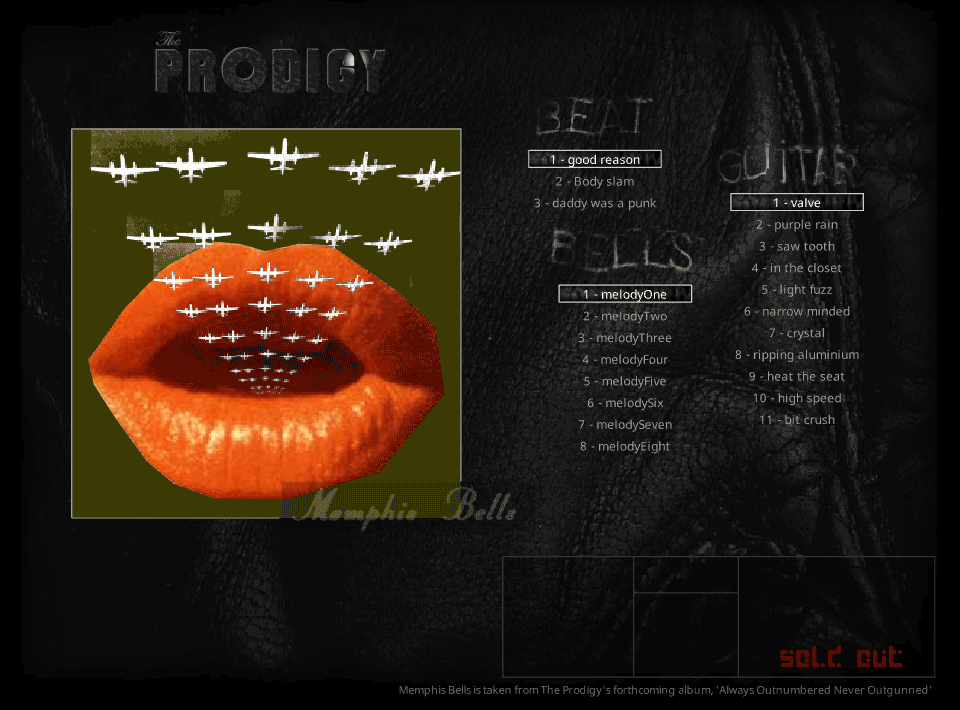
A month later, on June 25, a special website, alwaysoutnumbered.com, was launched, where a few days later, anyone could buy their own unique version of ‘Memphis Bells’, changing the sound of the guitar, main melody, and beat from several offered options. Officially, the scheme was presented as follows: when entering the site with parts of ‘Memphis Bells’, the user is presented with an interface where they can choose a track with 3 different types of beats, 8 melody options, and 11 guitar riffs – each sample is available both in a separate preview and in a general mix. There are also 4 types of mixes: a regular mix, a surround mix for headphones, an even more powerful mix for a large system, and a mix for a 5.1 system. The project was developed and implemented by TrustMedia, initially planning to sell 10,000 unique copies of the track – however, on the day the site opened, the number was officially reduced to 5,000.
Marcan @ Hydrogen Audio: The first release will be for end of June. 10,000 interpretation of the same track will be distributed two month before the official release of this well known band. Each interpretation will be different (with a nice interface letting people easily choose) and you will have the choice between four different mixes:
Standard mix: This mix is the standard mix with compression and limitation as usual. The format should be mp3 lame api directly encoded from 24 bits.
Headphone mix: This mix has been especially mix for headphones (I have done the mix with ety’s and HD 650) with 3D and binaural effects. The format should be mp3 lame aps directly encoded from 24 bits.
Big mix: This mix has been made for big loudspeakers or sub bass equipped system. Sub bass and production have been added. According to the loudness race discussed here, compression and limitation are very light, so the dynamic and therefore the track is full of life . The format will be pcm 16/44.1 directly dithered/noise shaped from 24 bits.
5.1 mix: This mix is made in 5.1 and it rocks (we didn’t just put reverb in the rears channel). You better have a good sub . The format will be DTS audio 24/44.1.
The idea was indeed innovative: in the pre-streaming era, the music industry was particularly keen on controlling the distribution and replication of recordings. However, with the rapid rise of internet piracy, this was becoming increasingly difficult. TrustMedia’s idea was to create a unique piece of art: the comparison to Warhol‘s Monroe in all press releases was certainly no coincidence. Despite the strong similarity of the works, the user always receives a unique product, which in turn increases its value.
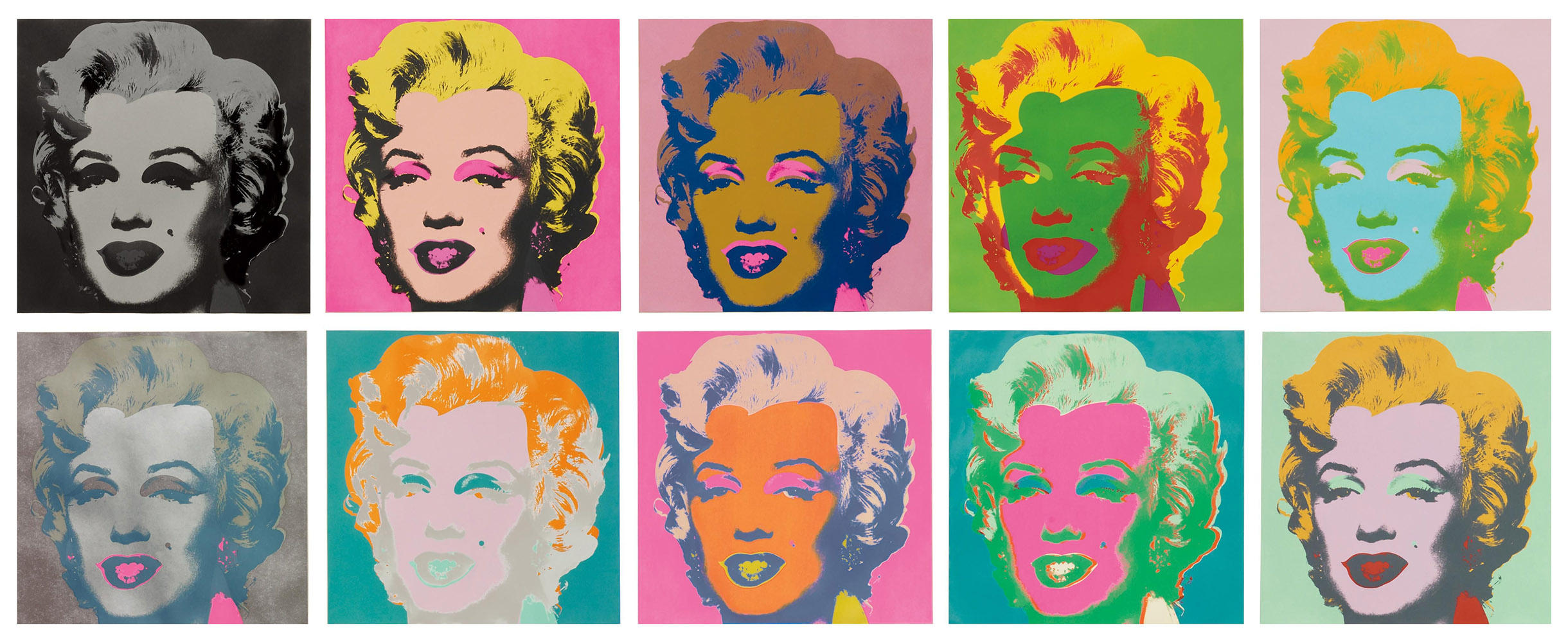
Heise Online Review: In the same way that Andy Warhol created different colour prints of Marylin Monroe photos in the 1960s, where each copy remained an original despite mass production due to colour and print variations, TrustMedia’s process is designed to combine songs from different elements, allowing hundreds of different mixes to be created with just a few parameters
Liam Howlett’s personal attitude towards the then-developing internet also changed significantly over just 5-7 years: instead of repeating the slogan ‘Fuck the Internet’, which was even printed on the band’s official T-shirts, he now enthusiastically embraced any unconventional and fresh ideas related to promoting the new album. This is why he agreed to the intriguing venture proposed by TrustMedia, even though many artists and record companies were still skeptical about using the web to promote their work.
Along with a unique mix, the user also received a unique cover, which changed in an original way depending on each selected element: here, the comparison with Warhol is again relevant.
The officially stated number of available track versions (5,000 copies) also raises questions. Considering the 3 beat variations, 8 melodies, and 11 guitar parts, multiplied by 4 mix versions for different systems, the total comes to 1,056. The project’s developer explains the figure of 5,000 by noting the minor differences in every single one of the mixes.
Marcan @ Hydrogen Audio: So we have 264×4=1056 interpretations and mixes. However each interpretation sold is unique. Subtle variations have been added in order to ensure a better choice for the fans while keeping the uniqueness of each interpretation. For example each interpretation (amongst 264) of the classic mix has been created 20 times with subtle variations. Therefore 20 fans will be able to buy one interpretation of the classic mix. For the 5.1, it’s 4. Right now we have downmixed more than 15,000 interpretations/mixes. We will stop the sale at 5,000
BEAT
- 1. Good Reason
- 2. Body Slam
- 3. Daddy Was A Punk
BELLS
- 1. Melody One
- 2. Melody Two
- 3. Melody Three
- 4. Melody Four
- 5. Melody Five
- 6. Melody Six
- 7. Melody Seven
- 8. Melody Eight
GUITAR
- 1. Valve
- 2. Purple Rain
- 3. Saw Tooth
- 4. In The Closet
- 5. Light Fuzz
- 6. Narrow Minded
- 7. Crystal
- 8. Ripping Aluminium
- 9. Heat The Seat
- 10. High Speed
- 11. Bit Crush
The developers, aware of the limited number of versions (264) and mix variations (1,056), clearly anticipated high demand for the single, as it was the first official release after the legendary ‘The Fat Of The Land’. For what was the most popular electronic band in the world 5-7 years ago, releasing a long-awaited album in 2004 after 7 years of silence, 5,000 sold copies was a minuscule amount that would obviously sell out in a matter of minutes if there was high demand. However, the development team decided to make such a limited edition due to ‘technical reason’.
Therefore, expecting heightened attention, the developers of alwaysoutnumbered.com hardly advertised the site anywhere: Liam Howlett himself, the label, and the technical team wanted to test the new service in a more intimate setting without extreme loads. Officially, only two announcements were made: on the Nekozine (at that time, possibly the most popular and informative fan site about the band) and the Hydrogen Audio forum. According to unconfirmed reports, several email newsletters were also sent out, including from the band itself.
According to the developer, all versions were prepared in advance, not generated in real time, as some sources wrote at the time.
Marcan @ Hydrogen Audio: I first met the manager for the presentation of the concept. He liked it. Then I presented the project to the label (Beggars Group/XL Recordings). Finally, I have worked on this with Liam (the head of the band). We have created and selected the different variation. I made the different mixes. Liam approved it. He is very cool but he knows what he wants
By the way, the tracks available on the website still lacked vocals: ‘For the vocals, Liam asked me to retrieve it… I guess he wanted to make it different of the album…’ wrote Marcan. Most likely, it was already known then that a mix with Princess Superstar was planned for the album, but for the internet single, it was decided to mix versions without vocals — probably to avoid paying royalties to the vocalist for every sold version of the track.
Despite the seemingly absent advertising and modest announcements, at the moment of sales launch (evening of June 28), TrustMedia servers in London and Brussels crashed: with more than 300,000 hits on the first hour, overload was enormous and users could only buy their copies with a significant delay. There were also issues with PayPal: money was deducted from users, but due to overload, it was impossible to receive the files — cases like these were resolved personally over the next couple of weeks, when fans were asked to write to the company’s email.
On the evening of 30 June, Marcan wrote that 5,000 copies had been sold in 36 hours: ‘OK It’s over now. 5,000 versions sold in 36 hours. GREAT. Lots of server overlod. I didn’t sleep for 3 days now. I’M GOING TO SLEEP. I’ll get back to you with the madness of the operation and the analysis of the adventure’. A few weeks later, he added that it was ‘the most wonderful and stressing day of my life (u can imagine)’.

All in all, the first copy was sold on 28 June 2004 at 20:25 GMT+1, and the last copy was sold on 30 June at 11:54 GMT+1. Liam Howlett himself was quite pleased with the result: ‘it was cool,a few teething problems but very good well done LIam On Thursday, Jul 1, 2004, at 21:20 Europe/London’
The original version was labeled as 1-1-1 (that is, the first version of the beat, the first version of the melody, and the first version of the guitar), but it still slightly differed from the instrumental on the album. This difference can be heard in just one place, at 3:12. Other versions from the site were supposed to be named according to the same principle, and also contain a note about the mix type.
However, after purchasing, some fans have found that the instrumental parts of the track do not always match the version they bought. Over the years, we also noticed that the vast majority of mixes available on various online fan resources were also not the declared version. There was no reason for fans to rename the files they had purchased, so we decided to look a little deeper.
As mentioned above, for a band with such a huge fan base, it was important to have the maximum number of unique mixes, despite not planning a broad promotional campaign. At the same time, selling 1,056 mixes for about $3 each with a total revenue of just over $3,000 was impractical, as it would not even cover even half of the project’s costs. Therefore, TrustMedia decided to make unique differences when mixing identical versions to satisfy the high demand and avoid possible complaints about selling identical copies (since in that case, all claims of each tune’s uniqueness would have been just words).

Based on the initial announcement of the planned sale of 10,000 copies with 1,056 different mixes, it can be assumed that there was a possibility to make about 10 unique sound treatments for each track (1,056 x 10 = about 10,000). Interestingly, a month before the announcement of ‘Memphis Bells’, the statement about 10,000 exclusive copies was already questioned, and instead of answering how these versions would be created, Marcan focused on technical details.
dev0 @ Hydrogen Audio: How are you going to get 10.000 interpretations of the same song? I might be missing something, but that seems insane to me
Marcan @ Hydrogen Audio: Actually it’s really easy. For example we have here 10 melodies for one instrument. 11 sounds for another instrument. 3 rhythms. 500 movements in the panoramic for one element (this variation is subtle). 4 mixes. When you combine, it means 10x11x3x500x4=660,000 different interpretations…
After it was announced that The Prodigy were participating in the project, Marcan wrote that he already mixed 15,000 varieties of ‘Memphis Bells’ (and according to the developer, the total number of possible variations reaches 39,600) — while only 5,000 are planned to be released for sale, instead of the originally stated 10,000.
Negritot @ Hydrogen Audio: So if someone has already created a version that I like, you’ll refuse to sell that same version to me?
Marcan @ Hydrogen Audio: Nice try but we thought about that. […] Right now we have downmixed more than 15,000 interpretations/mixes. We will stop the sale at 5,000
Considering the lack of an automated algorithm, all the mixdowns were done manually in advance, which sounds fantastic. Even with modern technology, manually creating 15,000 renders in a short period, taking into account all approvals and tests, is practically impossible, as any mix engineer or other sound specialist can easily confirm (unless you rent a sweatshop somewhere in India). And since the team was limited to just a few people, the feasibility of such a huge number of mixes and only one month for preparation raises significant doubts.
In the end, it’s hard to say how many times certain versions were sold. After the campaign ended, it was announced that 5,000 copies had been sold, but considering all the technical difficulties in the process, this also raises questions.
There was either no automatic file distribution system at all, or it malfunctioned due to the load, which meant that each download (including the mix and the cover) was sent manually: ‘PayPal had a problem cos they couldn’t send us the payment notification to our server during hours, letting people who paid unable to download their version… All night long, I authorized the downloading by hand. It drove me crazy…’
In such a situation, simply renaming files and choosing the most suitable mix by sound instead of searching for the necessary version among thousands of variations or doing a mixdown right before sending seems the most likely course of events in those days.

Press releases also stated that each cover would be signed with a unique release number; however, according to news sites at the time, this was not done: ‘The printed covers do not have the promised serial numbering and differ only in color,’ wrote the German newspaper Heise Online. Nevertheless, a project of such scale, launched for the first time ever, simply could not go ahead without some technical mishaps, and in the end, all this turned into a big confusion in the versions of the track.
Here are some of the versions we have personally sorted out.
- 3-8-1 = 1-1-3 (Normal is a fake 320!)
- 3-3-2 = 3-1-2
- 3-3-9 = 1-1-7
- 1-1-1 (3023) = 1-1-2
- 3-3-7 = 3-6-7
- 3-3-5 = (Headphones Mix) 2 = 3-1-5
Anyway, the overall existence of all 264 versions of the track is quite questionable, not to mention all 1056 versions taking into account different formats. By the way, if you have a version that is not in our list above – send it to us and we will help you find out which version it really is.
As well as the problems with purchasing the track, some were unhappy with the price per file, with both fans frustrated by technical problems and ironic journalists complaining: “The download e-tails for two pounds, which is… um… like 700 American dollars if our math is correct,” wrote CMJ Alert magazine. At the time you could buy a complete single on physical media for a couple of pounds, and the mention of $700 is obviously a joke about overpricing. However, for such a unique and unprecedented project, the cost of a single mix was quite reasonable, especially by today’s standards.
‘Memphis Bells’ Live
After the release of the album, many considered the tune to be a filler track, only worthy of being released as a B-side on a single. However, Liam strongly disagreed with this opinion and even tried to add ‘Memphis Bells’ to the band’s live setlist. This idea ended with only four performances on a UK and European tour in August 2005:
- 5 August, Edinburgh: https://www.theprodigyontour.com/?p=1464
- 6 August, London: https://www.theprodigyontour.com/?p=1462
- 7 August, London: https://www.theprodigyontour.com/?p=1460
- 13 August, Denmark: https://www.theprodigyontour.com/?p=1456
The track was re-arranged for live performances, as were many other tracks from the ‘Always Outnumbered’ era. Many fans liked this version of ‘Memphis Bells’ much more than the one released on the album. In Liam’s words it was an edited and slightly sped up album version.
Review from James Jupiter (5 August): Now we come to the surprise of the show – ‘Memphis Bells’. This is the first time it has been played live in full to my knowledge. It’s a different mix from the album version and once again this track has been pumped up for the live show. Maxim’s vocals include the line “Rude Boy”. This version is sort of a fast ‘rude boy skank’ type track (if that makes sense) with the jittery stop-start beats. I loved it. It’s always good to chop and change the set around and throwing in this track worked for me
Review from Neko (7 August): Memphis Bells then – only the third time this track gets played live and it just totally works. Even if you’re not so keen on this on the album, it’s a great live track, especially the extra vocals by Maxim make it great.
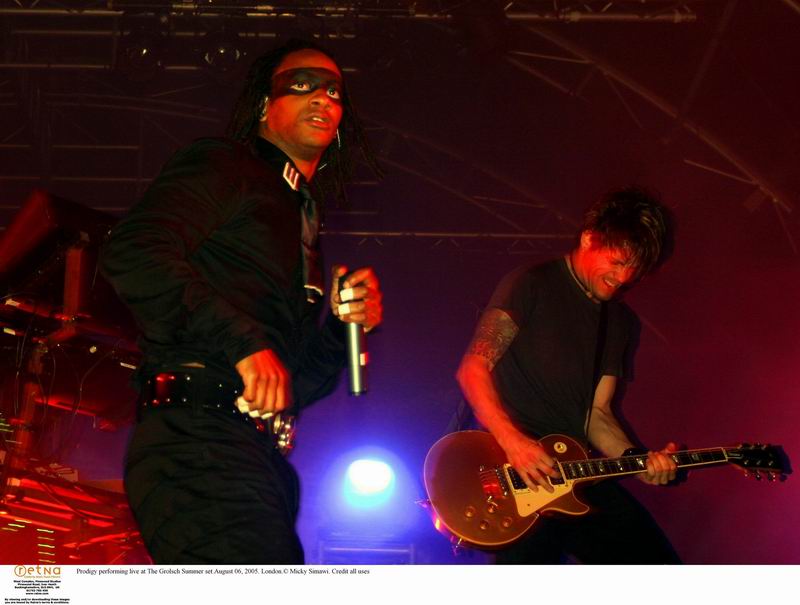
Review from Zumo (13 August): The new “memphis bells” live had also been added beats, samples and the tempo had been rised a bit. But it was still a bit too slow for most people to groove with it. Especialy after the new fast “hotride”. But i liked it! was much better than the album version!
Review from Lectro (13 August): Then the biggest surprise of the night! “Memphis Bells” live! A new version with heavier drums and a cooler buildup etc. I really loved hearing this one. Didn’t know it could sound so good. Before this gig I’ve really hated this track and thought it shouldn’t ever have been released as a Prodigy-track. Mainly because of the bells who always change key and that sounded very awfull to me… Now when I’ve heard it live I quite like the track actually. I find it cool now. It’s a Prodigy track now I’ve heard it live. It fits into my idea of The Prodigy. Very cool!
It is unknown why the track was no longer played live after only four performances. Equally frustrating is the fact that no live recordings of ‘Memphis Bells’ from these performances have yet appeared online. So if you have a recording left it would be appreciated if you could share it.
However, it can be recalled that starting from the mid-00s Liam has occasionally played the background noise of the ‘Memphis Bells’ as a filler, while in the ‘2015 version of No Good Howlett used another piece from the middle of the track (by the way, we recently restored this version of ‘Start The Dance’). Sadly, ‘Memphis Bells’ has not been played in its entirety since 2004.
For lack of original excursion, check out this awesome cover by the Plastic band. This tune has so much live potential in it!
By the way, it’s worth noting that the title ‘Memphis Bells’ clearly refers to the American World War II aircraft known as the Memphis Belle – an unofficial name for the Boeing B-17 Flying Fortress that was actively used during the WWII in 1942 and 1943. Here Howlett continues the militaristic concept of the record after Spitfire, the first track on the album.
Soon we’ll continue the track-by-track story of Always Outnumbered, Never Outgunned, The Prodigy’s most underrated record… Stay tuned!
Headmasters: SIXSHOT, SPLIT
Additional thanks to: DMTRPTPV
Donate
- Tether (USDT)
Donate Tether(USDT) to this address

